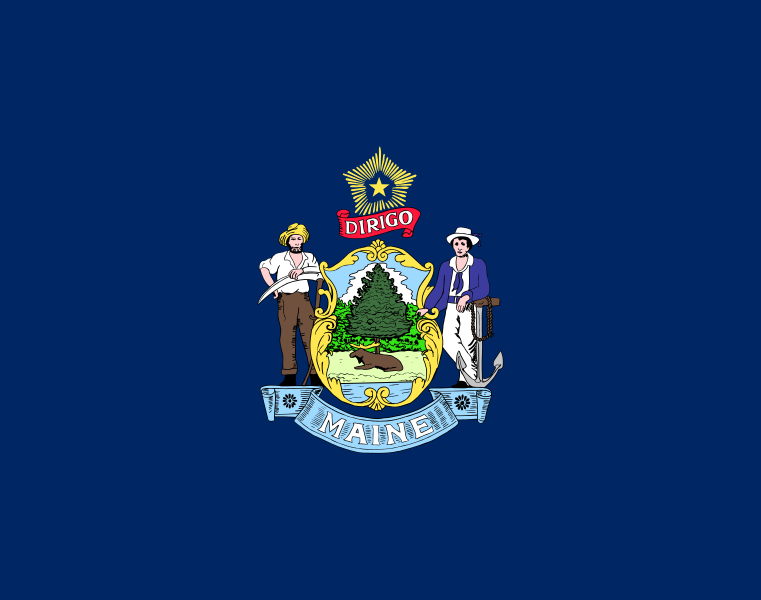Maine Gov. Janet Mills (D) vetoed an indirect initiative that would prohibit election spending by foreign governments, including entities with partial government ownership or control, on July 19, 2023. Voters will decide on the indirect initiative on Nov. 7, 2023, unless the Legislature overrides the governor's veto.
In Maine, citizen-initiated state statutes must meet a signature requirement to be considered by the Maine State Legislature, which is calculated as 10% of the total votes cast for governor in the last gubernatorial election. In Nov. 2022, Protect Maine Elections, which is the campaign behind the initiative, submitted 67,550 valid signatures, meeting the signature requirement of 63,067 signatures, and was certified to the Legislature.
Out of the 21 states that provide for citizen-initiated state statutes, nine (9) of them, including Maine, have an indirect initiated statute process. The other states are Alaska, Massachusetts, Michigan, Nevada, Ohio, Utah, Washington, and Wyoming. If the Legislature approves the initiative (and the governor enacts it in the states that require governor approval), the initiative becomes law. If the Legislature does not approve the initiative, or if the governor vetoes the initiative, it goes to the ballot for Maine voters to decide. Out of the nine states that provide for the indirect initiated state statute process, five states—Maine, as well as Massachusetts, Nevada, Ohio, and Utah—allow for the governor to veto an initiative the state legislature approves.
The Legislature approved the initiative—the first time in 16 years that legislators approved a citizen initiative rather than letting the initiative go to the ballot. On June 26, the House voted 73-53 to pass the initiative. On July 6, the Senate concurred with the House and also passed the initiative.
Gov. Mills said in a statement that the language of the initiative was too broad, and could have other potential impacts. She said, “While I strongly support and share the desire to find ways to prevent foreign influence in our elections, the language of this bill is too broad and would likely result in the unintended consequences of effectively silencing legitimate voices, including Maine-based businesses, in debates that would impact their interests.”
Gov. Mills vetoed a similar bill, LD 194, in 2021, which was designed to prohibit contributions by foreign government-owned entities to influence ballot measures. In a statement, Gov. Mill said that "entities with direct foreign investment employ thousands of Mainers,” and that “legislation that could bar these entities from any form of participation in a referendum is offensive to the democratic process, which depends on a free and unfettered exchange of ideas, information, and opinion." In 2021, Question 1—an initiative that prohibited the construction of electric transmission lines defined as high-impact in the Upper Kennebec Region, including the NECEC—was on the ballot. Five PACs opposed the ballot measure, and out of the $71.9 million raised to oppose the initiative, $20.59 million came from H.Q. Energy Services (U.S.) Inc., which is a subsidiary of Hydro-Québec, a Canadian utility. On July 29, 2020, 25 current and former state legislators sent a letter to Quebec Premier François Legault and Hydro-Québec CEO Sophie Brochu, requesting that Hydro-Québec cease campaign activities in Maine. Question 1 was approved by Maine voters on Nov. 2, 2021, by 59.2%-40.8%.
The Legislature can vote on July 25 on whether to override the governor’s veto of the foreign spending initiative. If the Legislature does not override the initiative, it will go to Maine voters in November. For the Legislature to override the governor’s veto, a two-thirds majority vote in both chambers of the state legislature. This amounts to 101 votes in the House and 24 votes in the Senate, assuming no absences.
Between 2010 and 2020, Maine had the second-highest total amount of veto overrides compared to other states—out of the 706 vetoes by the governor, 133 of them (18.8%) were overridden by the Legislature. South Carolina had the highest total amount of veto overrides in this same time period, with 138 (29.8%) of the 463 vetoes overridden, and Nebraska had the highest percentage of vetoes overridden by the legislature, with 22 (55%) of the 40 vetoes overridden.
Out of the 78 citizen initiatives that have gone to the Maine Legislature in Maine’s history, eight (10.25%) of them were enacted by the Legislature and then approved by the governor. The only time a citizen initiative was vetoed by the governor and then went to the Maine ballot was in 2007, for a measure that would have authorized the operation of slot machines at a tribal commercial track (voters defeated this initiative by 52%-47%). Another citizen initiative that went to the Legislature was also enacted in 2007—the last time the Legislature and the governor enacted a citizen initiative—to allow for a tax credit for college loan repayments.
In 2023, three other citizen-initiated state statutes went to the Legislature. The Legislature did not approve these measures, so they will appear on the ballot for Maine voters to decide in November. These measures are:
- A measure that would create the Pine Tree Power Company, a municipal electric utility, and allow for the Pine Tree Power Company to purchase and acquire all investor-owned transmission and distribution utilities in Maine, including Central Maine Power (CMP) and Versant.
- A measure that would allow motor vehicle owners and independent repair facilities to have access to the vehicle on-board diagnostic systems.
- A measure that would require voter approval for certain state entities, municipal electric districts, electrification cooperatives, or consumer-owned transmission utilities to incur an outstanding debt that exceeds $1 billion
Additional reading:


